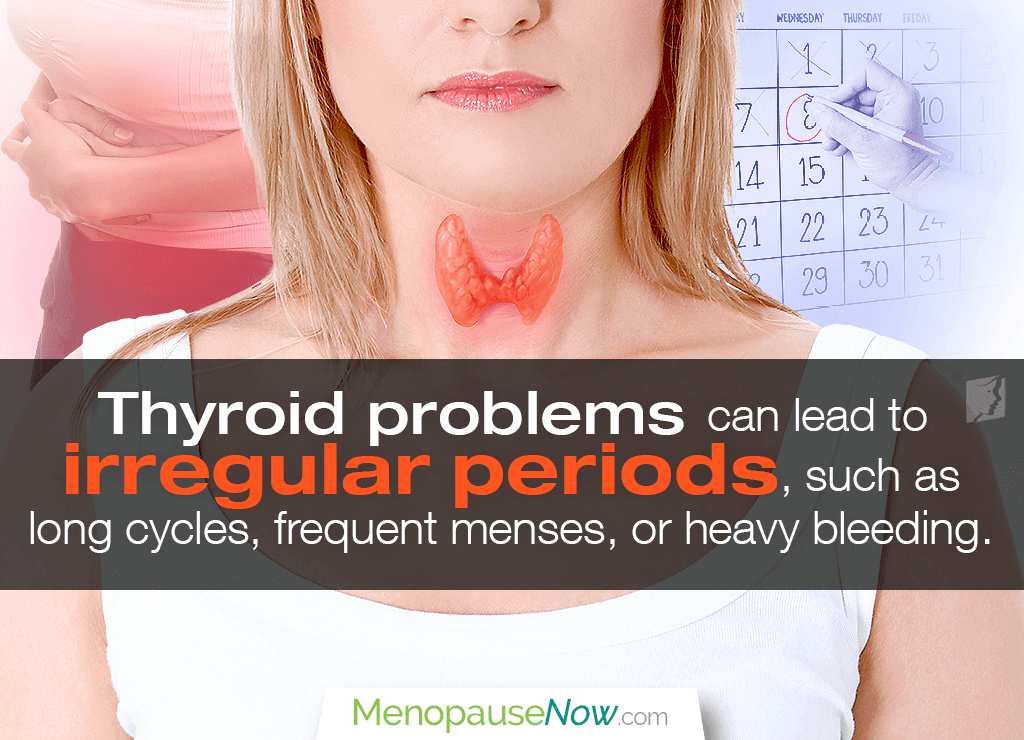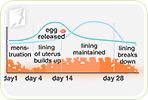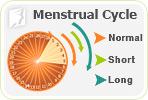Although irregular periods are most commonly associated with menopause, they can be caused by other lifestyle habits and medical conditions, such as a thyroid disorder. Continue reading for more detailed information about the thyroid and irregular periods so you can be on the path to optimal reproductive health.
About Thyroid Disorders
The thyroid is an endocrine gland that controls a slew of bodily functions, including energy use, protein production, and interactions among hormones.
Most problems with thyroid function can be categorized as one of two different conditions: hyperthyroidism (an overactive thyroid) or hypothyroidism (an underactive thyroid).
Types of Irregular Periods from Thyroid Disorders
Thyroid problems can lead to irregular periods, which can manifest as a variety of different menstrual abnormalities.
Hypothyroidism
An underactive thyroid has been scientifically linked to the following types of irregularities:1,2,3
- Oligomenorrhea, or menstrual cycles that are longer than 35 days
- Hypomenorrhea, or scanty periods
- Menorrhagia/ Hypermenorrhea, which is bleeding that is heavier or more prolonged than usual
- Metrorrhagia, also called spotting not associated with menstruation
- Polymenorrhea, which is a menstrual cycle that is shorter than 21 days
- Amenorrhea, during which there is an absence of periods for at least 90 days
Hyperthyroidism
On the other hand, an overactive thyroid has been scientifically linked to the following types of menstrual irregularities:2,3,4
- Oligomenorrhea, or infrequent menstrual cycles
- Hypomenorrhea, or scanty periods
- Amenorrhea, where there is an absence of periods for at least three months
Keep in mind that irregular periods can also be a symptom of uterine polyps, endometriosis, pelvic inflammatory disease (PID), polycystic ovary syndrome (PCOS), or premature ovarian insufficiency, making it essential for women to seek the appropriate testing with their doctors.
Managing Irregular Periods
If irregular periods are caused by a thyroid disorder, women should speak with their doctors to develop a personalized treatment plan.
For women passing through perimenopause, occasional irregular periods unaccompanied by other symptoms and not indicative of a medical condition are usually not a cause for concern.
Accordingly, enjoying a regular menstrual cycle lies in promoting endocrine system health through:
- Relaxation techniques. Yoga, meditation, tai chi, and other stress relief techniques may be able to help your cycle since chronic stress can also lead to irregular periods.
- Regular exercise. Research suggests that menstrual cramps lessen when women partake in regular exercise.5
- Optimized diet. Following a menopause diet that focuses on whole grains and plant-based protein among other healthy options will help allay symptoms of hormonal imbalance, such as irregular periods.
- Herbal supplements. Phytoestrogenic herbal supplements and hormone-regulating supplements have been used throughout the years to encourage hormonal balance during menopause.
Find out more about natural and effective irregular periods treatments by clicking on the previous link. Don't let these symptoms get you down for the following years to come!
Sources
- Cleveland Clinic. (2019). Abnormal Menstruation (Periods): Overview | Management and Treatment. Retrieved December 4, 2019, from https://my.clevelandclinic.org/health/diseases/14633-abnormal-menstruation-periods | https://my.clevelandclinic.org/health/diseases/14633-abnormal-menstruation-periods/management-and-treatment
- John Hopkins Medicine. (n.d.). Amenorrhea. Retrieved December 4, 2019, from https://www.hopkinsmedicine.org/health/conditions-and-diseases/amenorrhea
Footnotes:
- Krassas, G.E. et al. (1999). Disturbances of menstruation in hypothyroidism. Clinical Endocrinology (Oxford), 50(5), 655-659. doi: 10.1046/j.1365-2265.1999.00719.x
- Ramya, M.R. et al. (2017). Menstrual disorders associated with thyroid dysfunction. International Journal of Reproduction, Contraception, Obstetrics and Gynecology, 6(11), 5113-5117. Retrieved December 4, 2019, from https://pdfs.semanticscholar.org/04ab/570dd72ff6896f59a73f840a2015f565238b.pdf
- Ajmani, N.S. et al. (2016). Role of Thyroid Dysfunction in Patients with Menstrual Disorders in Tertiary Care Center of Walled City of Delhi. Journal of Obstetrics & Gynecology of India, 66(2), 115-119. doi: 10.1007/s13224-014-0650-0
- Gungor, G. et al. (2015). Menstrual disturbances in thyroid dysfunction. Endocrine Abstracts, 37, EP1048. doi: 10.1530/endoabs.37.EP1048
- Office on Women's Health. (2018). Physical activity and your menstrual cycle. Retrieved December 4, 2019, from https://www.womenshealth.gov/getting-active/physical-activity-menstrual-cycle




